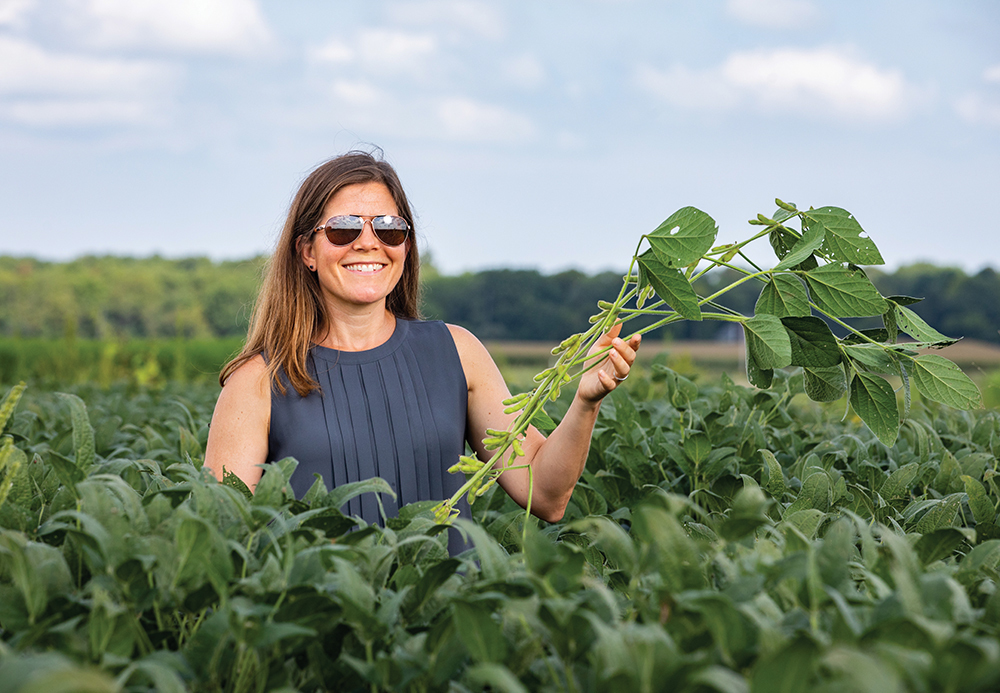Prominent global change scientist joins crop sciences, plant biology at Illinois

Globally recognized as one of the most influential modern scientists, Elizabeth “Lisa” Ainsworth has been named Professor and C.A. Ewing Chair of Crop Physiology in the Department of Crop Sciences and the Department of Plant Biology at the University of Illinois Urbana-Champaign.
For nearly a quarter century, Ainsworth has led her field to understand how crop plants adapt to global change. Best known for her work leading the university’s long-running Soybean Free Air Concentration Enrichment (SoyFACE) project, she and her collaborators have discovered how changes in atmospheric carbon dioxide, ozone, temperature, and precipitation impact crop physiology, yield, grain quality, and more, extending to the ecosystem level. Her ultimate goal is to maximize crop production in an uncertain climate future.
“Dr. Ainsworth’s research on the influence of global change on adaptation by crop plants has defined the research agenda on this topic for the past two decades. We’re very excited to welcome her to the department in this capacity,” said Adam Davis, department head for crop sciences, part of the College of Agricultural, Consumer and Environmental Sciences at Illinois.
Ainsworth came to the university as a doctoral student in 1998 and investigated how rising atmospheric carbon dioxide concentrations impacted photosynthesis in diverse species — from oak trees to soybeans. After a postdoctoral fellowship in Germany, she joined the Global Change & Photosynthesis Unit at USDA-ARS — situated on the Urbana campus — and became the research leader in 2019.
In recognition of her research and service, Ainsworth was awarded the 2019 National Academy of Sciences Prize in Food and Agriculture, and in 2020, she was elected to the National Academy of Sciences. She has held leadership positions in the American Society of Plant Biology (ASPB) and the Association for the Advancement of Sciences (AAAS) and currently serves on the editorial boards for Plant, Cell & Environment and Science Advances.
Throughout her career, Ainsworth has led several interdisciplinary and multi-institutional team science projects involving Illinois and partner institutions worldwide, including acting as deputy director of the Realizing Increased Photosynthetic Efficiency project. She has held affiliations with crop sciences and plant biology, as well as the Carl R. Woese Institute for Genomic Biology, the Center for Advanced Bioenergy and Bioproducts Innovation, the Agroecosystem Sustainability Center, and the National Center for Supercomputing Applications.
“Dr. Ainsworth exemplifies the successful integration of research, teaching, and service. Her work makes major impacts on both basic science and issues of societal relevance, which is more important now than ever. We are delighted to welcome her as a permanent member of our faculty,” said Katy Heath, head of plant biology, part of the College of Liberal Arts & Sciences at Illinois.
Ainsworth’s new title took effect on November 15, 2024. She will be invested as the C.A. Ewing Chair at a ceremony in the spring.
This story was originally published by the Illinois Colleges of ACES and written by Lauren Quinn.
RELATED RIPE OBJECTIVES
Optimizing Canopies